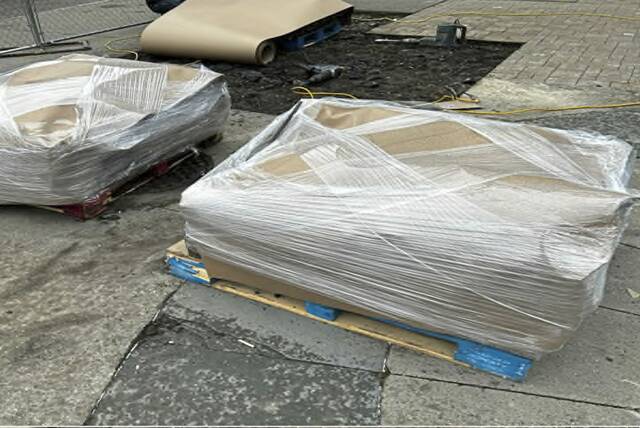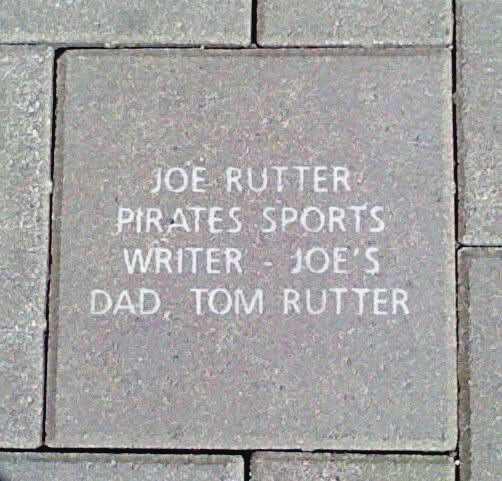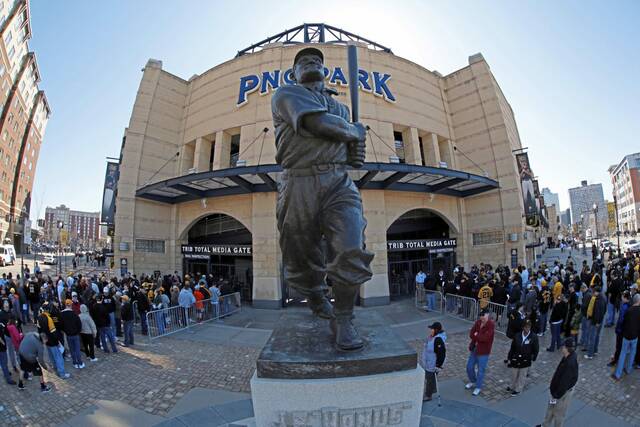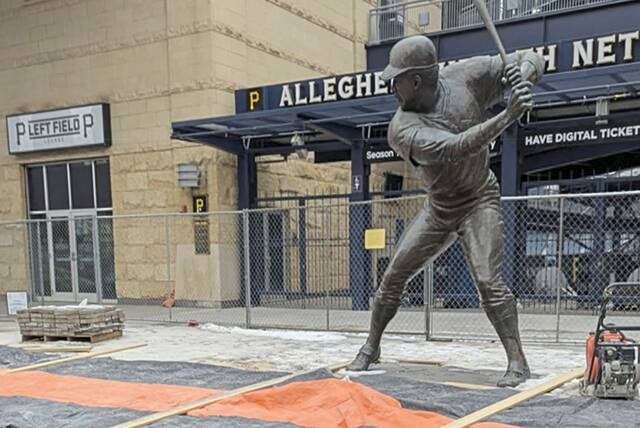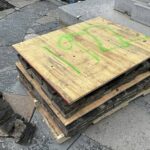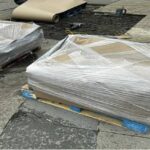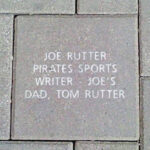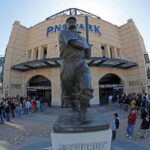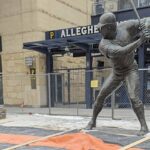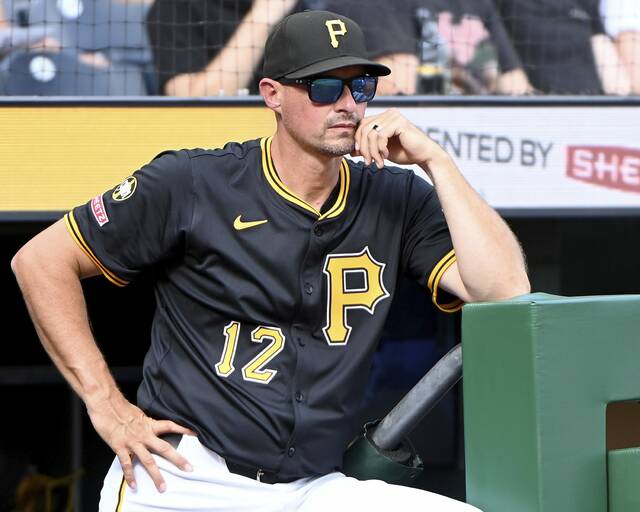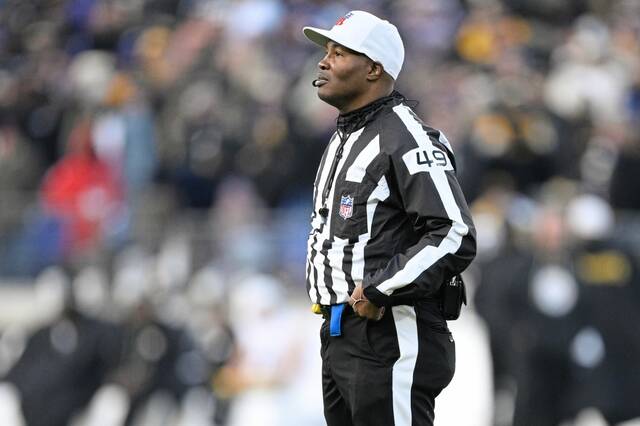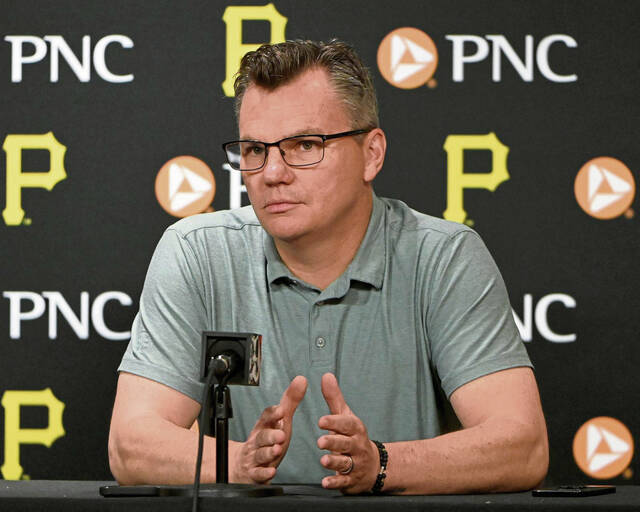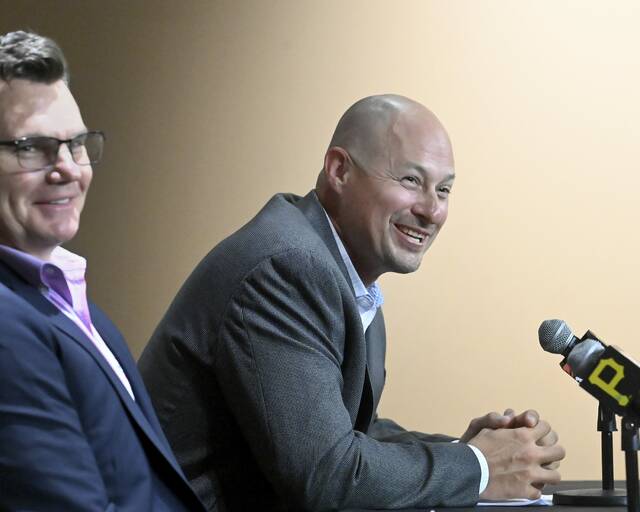A report commissioned by Pittsburgh’s Sports and Exhibition Authority places blame solely on the Pittsburgh Pirates for a controversial decision to scrap personalized, fan-purchased bricks at PNC Park without telling anyone.
“It was the Pirates, not the SEA or any of its contractors, that made the decision to dispose of the Bucco Bricks,” the report, dated May 8, said. “The Pirates did not communicate their intent or decision to dispose of the bricks to the SEA in advance of discarding them.”
The Pirates in 1999 launched the Bucco Bricks program, which let people to buy bricks with personalized messages to be displayed near the statues of Honus Wagner and Willie Stargell at the North Shore stadium.
About 10,000 bricks — which cost between $75 and $150 — were purchased through the program.
Those bricks were ripped up and discarded before this season’s opening day last month, sparking outrage from fans.
Pirates leaders have apologized for sending the bricks — which in many instances memorialized friends and family members — to a recycling center for building materials.
A report commissioned by the authority — a joint Pittsburgh-Allegheny County authority that owns PNC Park and, Acrisure Stadium and PPG Paints Arena — determined the initial plan was to preserve the bricks.
Titled “Investigative Report on the Excavation and Disposition of Commemorative Pavers at PNC Park,” the 18-page report, drafted by a lawyer, said the bricks were removed and replaced with concrete during a sidewalk replacement project that was funded by a state grant, the authority’s PNC Park Capital Reserve Fund and the Pirates.
During construction work, bricks were placed on pallets labeled with the year in which they were purchased. The contractor, PJ Dick, removed the commemorative bricks from the construction area, shrink-wrapped them on 32 labeled pallets and gave them to the Pirates organization.
Then, the report continues, the Pirates decided to dispose of the bricks without notifying the authority.
The Pirates hired Michael Brothers, a local hauling company, to take the bricks to its Reserve recycling facility.
According to the report, the Pirates determined most of the bricks were “unsalvageable” and could not be reinstalled elsewhere. The team also said it could not return them to the original buyers because the organization didn’t have contact information for the purchasers.
According to the report, no public dollars were used in disposing of the bricks.
In a statement, the Pirates said the bricks were removed because of deterioration from weather and foot traffic.
This was the third time the bricks were replaced.
The Pirates said they could not reinstall the bricks because they could become a tripping hazard and would need to be replaced again over time, the report said.
The Pirates are offering replica bricks for fans who bought Bucco Bricks that have now been removed. The team also said it is looking to install a new permanent display at the stadium that will feature messages from the old bricks.
Brian Warecki, a Pirates spokesperson, issued a statement in response to the report, noting the team took responsibility for the debacle.
“After 25 years, the sidewalks around PNC Park represented a safety risk and were in desperate need of repair, this included the Bucco Bricks. The way in which we communicated and handled the replacement of those bricks was flat-out wrong. That has been well documented at this point and something we, the Pirates, take sole and total responsibility for and are working hard to make it right.”
Bob Nutting, the Pirates owner and board chairman, had previously apologized for how the bricks were handled.
“I too was shocked, angered and disappointed when I saw the images of the bricks haplessly discarded in the scrap yard,” Nutting wrote in an email last month to TribLive. “That was a mistake. It was disrespectful. It was wrong. I am sorry.”
In its conclusion, the report leaves readers with a final, discouraging assessment of the Pirates’ actions.
“Rather than being treated as construction debris, careful steps were taken, and project funds were expended, to salvage and preserve the Bucco Bricks either for reinstallation or for a return of them to the fans who had purchased them,” the report said. “The Pirates rejected both of those options and opted instead to discard them.”



